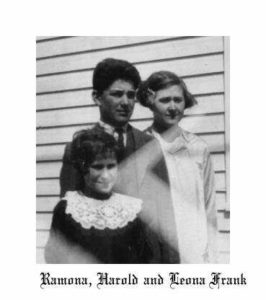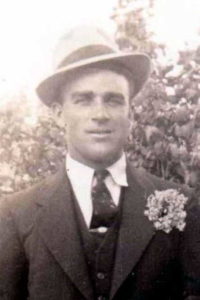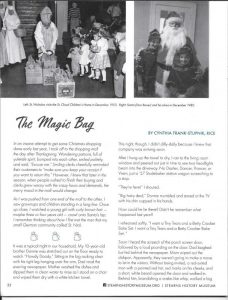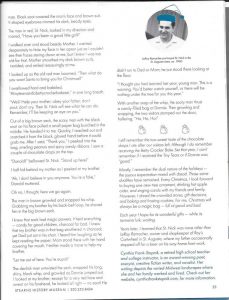Feel free to share my website or my Facebook post with others…..
Cynthia Frank-Stupnik
Glorious day
Rebecca Frank is with Cindy Stupnik. (From FACEBOOK)

Thank you, Buffalo, for such a great opportunity to visit with interested and interesting non-fiction and fiction readers. I had a glorious time (although it spitted rain, I had to hold on to my umbrella pole because of the wind, it was chilly, it was warm, and I got stung by a bee).
Why am I frowning? Not because of my future audience, but the hour. I woke at 5:15. By the time, Becky drove me to Buffalo and helped me set up, it was 8 in the morning– me–who doesn’t crawl out of bed before 8:30-9!!
To this crowd and all others: I am sorry if I sometimes get too animated when I am talking about the history of my former community, Clearwater, Minnesota. It is the teacher in me (taught English for 25 years, was raised with HISTORY/HERSTORY–from both parents. Dad had great pride in his home state of South Dakota, specifically, north of Yankton and German-Russian. Mother had an interest in all things Minnesota, her deep American roots as well as her European roots.)
My writing has been inspired by what my parents inspired in me. One of my favorite subjects is women and their everlasting plight to be heard, believed in, and respected. The struggle the average woman has had to face throughout her lifetime needs continual documentation because men didn’t do everything.
In all my research, I have found my small community, Clearwater, Minnesota, to be a microcosm of all that was good and awful in the world for women at any given time. Some are natural-born leaders and respected by all. Jennie Phillips, my protagonist in Scruples and Drams, was a leader in her community. From her views on the patent medicine products she sold in her store, to some of the other over-the-counter health products, how she feels about a high school joining the elementary and upper grades to the existing school building, etc, villagers, both men and women, newspaper reporters, asked her advice on important matters of the day.
The oldest girl in the family, smart, teacher-turned pharmacist, business co-and then full-owner of Phillips’ Drug Store, Jennie may have been successful and respected, but she faced disappointments as well. One was that her brother’s name legally had to be included on the Phillips; Drug Store sign in 1910 because she was a woman and wasn’t smart or trustworthy enough to handle business matters. Only men held those honors or responsibilities. It wasn’t Jennie’s first disappointment as a woman trying to pursue a career in a man’s world, though….
See what I mean? I get so excited and tangled up in my subject, I forget to shut up. I will stop and let you read my books. My next event is in Rice, Minnesota. Sept. 11-12. Saturday 8 a.m. to 6. pm and Sunday 9-4.
Cindy
“My Dad”
Paul Peterson sang “My Dad” during an episode of The Donna Reed Show. Although sung from Jeff Stone‘s teenage, male point of view, (he was the son of Donna and Dr. Alex Stone), he speaks for many of us females as well and our adoration toward our fathers. As the lyrics go, my dad, Harold Frank, may not have been, “. . .much in the eyes of the world; He’ll never make history…But he [was] the world to me.“
He had a rough beginning, but he seldom dwelt on it. Maybe I’ve blogged about Dad before. He was born and raised on a farm north of Yankton, South Dakota, to Fred and Anna (Hauck) Frank, children of immigrants from Russia. Both of his parents’ had strong family ties with lots of friends and relatives in the Yankton, Scotland, and Menno areas.
An article in the February 14, 1920 Scotland Journal announced that the area had been free of the flu so far that winter. Less week later, my dad’s family all came down with the dreaded virus. Grandma and Grandpa Frank died on the same day, February 21, 1920, with Dad’s little brother Eddie dying on the day of his folks’ funeral.
The three living Frank children went to live with Uncle Chris Hauck in St. Cloud, Minnesota. Aunt Leona was nine, Dad was seven, and Aunt Ramona was two. Later, the children were split up and fostered by different families. The picture below on the left was taken after Aunt Leona’s confirmation and the last day the three siblings would be together for many years. Aunt Leona’s family moved to Idaho. In fact, even though Dad and Aunt Leona corresponded, they didn’t see each other for forty-five years.
Dad stayed with his foster parents near Scotland until he was twenty-one when he moved back to the St. Cloud area and eventually met and married Mom, Winnie Johnson. (The picture of him on the right was taken when he still lived in South Dakota. Handsome devil, wasn’t he?)


As the song goes . . .Dad may not have “been much in the world,” but he was the world to me and my siblings. He went to work every morning clean as a fresh-washed copper penny, and after working hard in a hot iron foundry, he came home every night covered in black dust. He taught us right from wrong, taught us about his love of God and the Bible, guided us in faith, and he modeled a life to be followed. He was a quiet man with few wishes or needs except for a good chair to hang his leg over while he read his newspaper, a transistor radio to listen to his Minnesota Twins, a good hamburger anytime, and a beer to quench his thirst after mowing the lawn.
He also told us about our German-Russian heritage, which had been taught to him by his parents and later by his foster parents who were his first cousins. So important to him that it was important for my sister to begin researching our lineage. I took over when I moved to South Dakota. I eventually found that our Frank, Engel, Jasmann, Mueller and other relatives were the first German Russians to come to Dakota Territory in 1872 and settle in Odessa Township, Yankton County. I wrote Steppes to Neu-Odessa: Germans from Russia Who Settled in Odessa Township, Dakota Territory, 1872-1876, a biographical dictionary of these first settlers.
A bit of the orphan came out at times–like when Dad remarked that he never thought he would be so lucky to have a family. But I can say we, his children, were the lucky ones to have such a good father.
The Tin Can
My child, do not forget my teaching,
but let your heart keep my commandments . . .
It will be a healing for your flesh
and a refreshment for your body
Proverbs 3: 1, 8
Round, red, black, and gold container,
bottom rusted, lid twisted askew,
the Watkins carbolic salve
rested on the shelf above the basement steps–
next to Dad’s pint.
He self-medicated:
Burning swigs for sore throats,
Vicks rubs for coughs,
Hilex baths for itch and ground-in dirt.
The old man had cures for all our family’s ailments.
But for me as a small child,
the tin that held the brown muck,
stinking of gasoline and spruce, contained a mystery.
Whether I had a knee scrape, bee sting, or poison ivy,
and while I wept in pain, Dad performed his magic.
Bowing as if in prayer, he carefully wrapped
my wounds with a Band-Aid, gauze, or clean rag.
Before long, I was out playing again,
paying little attention to God’s healing power
delivered through my father’s hands.

